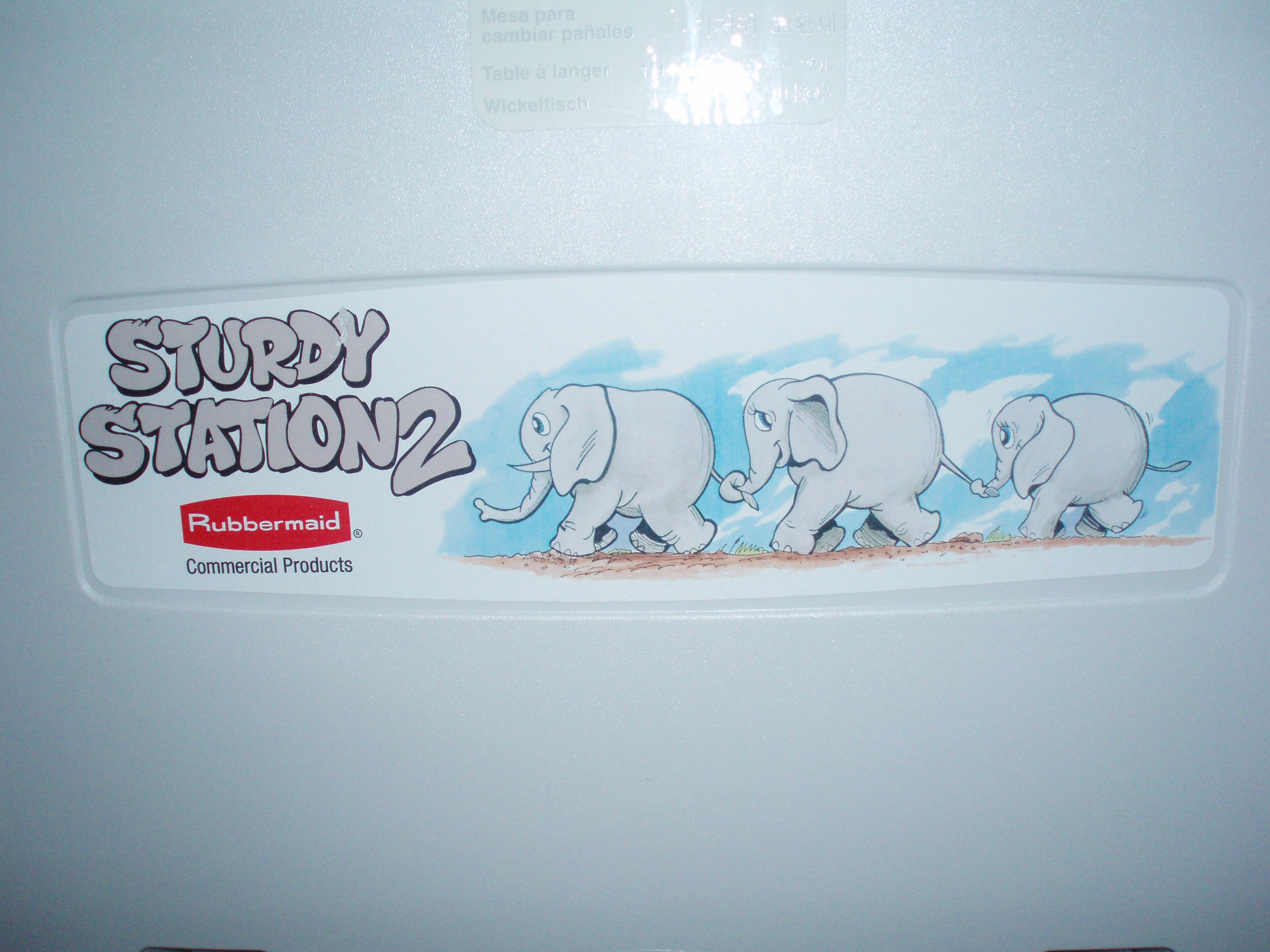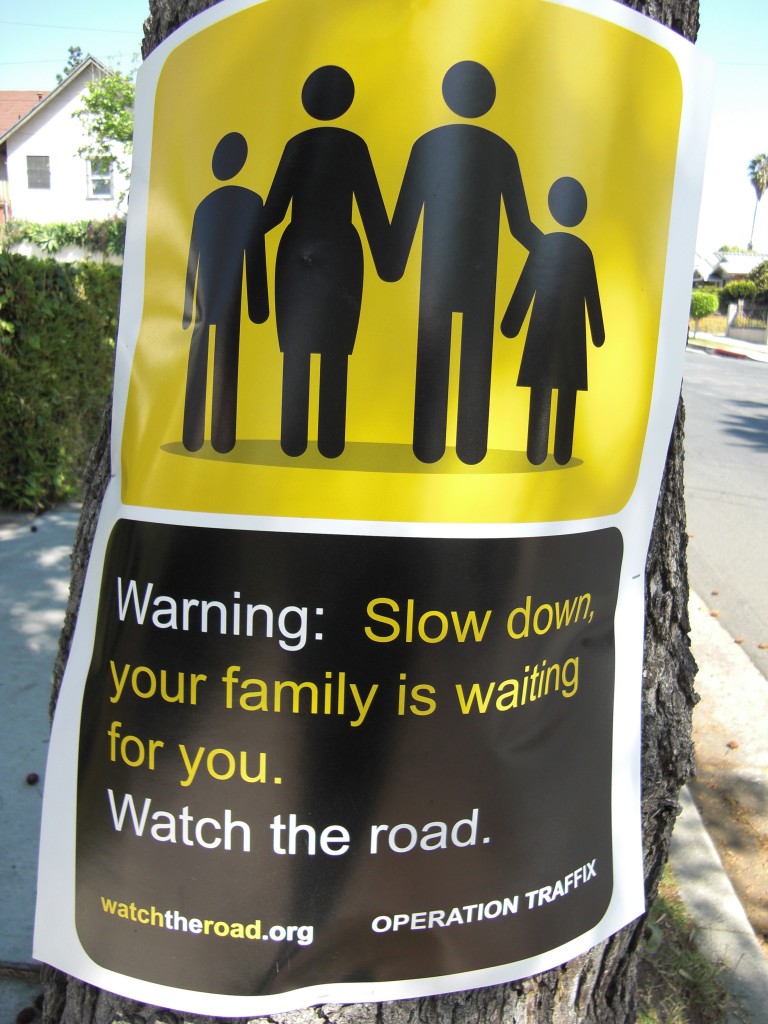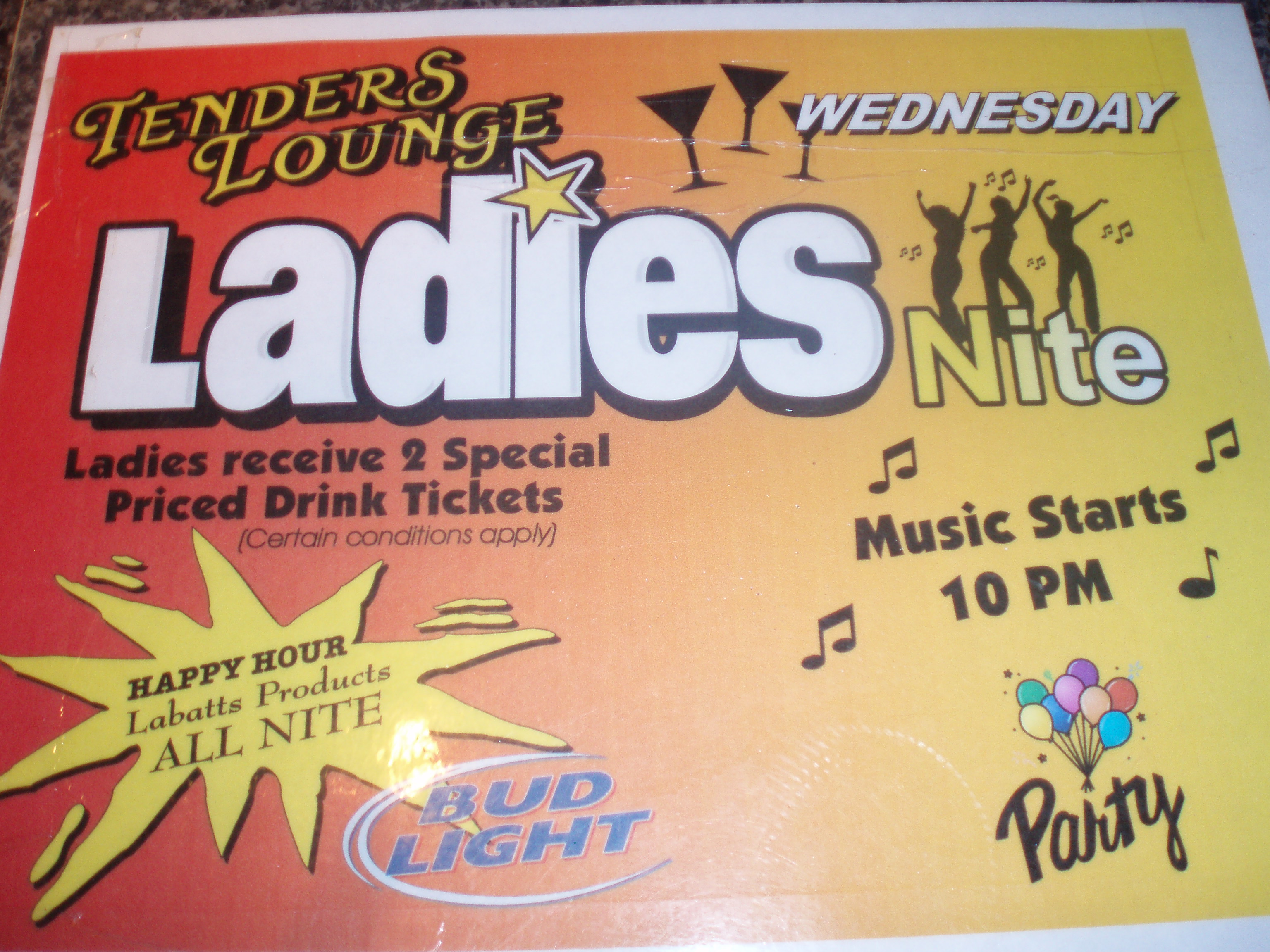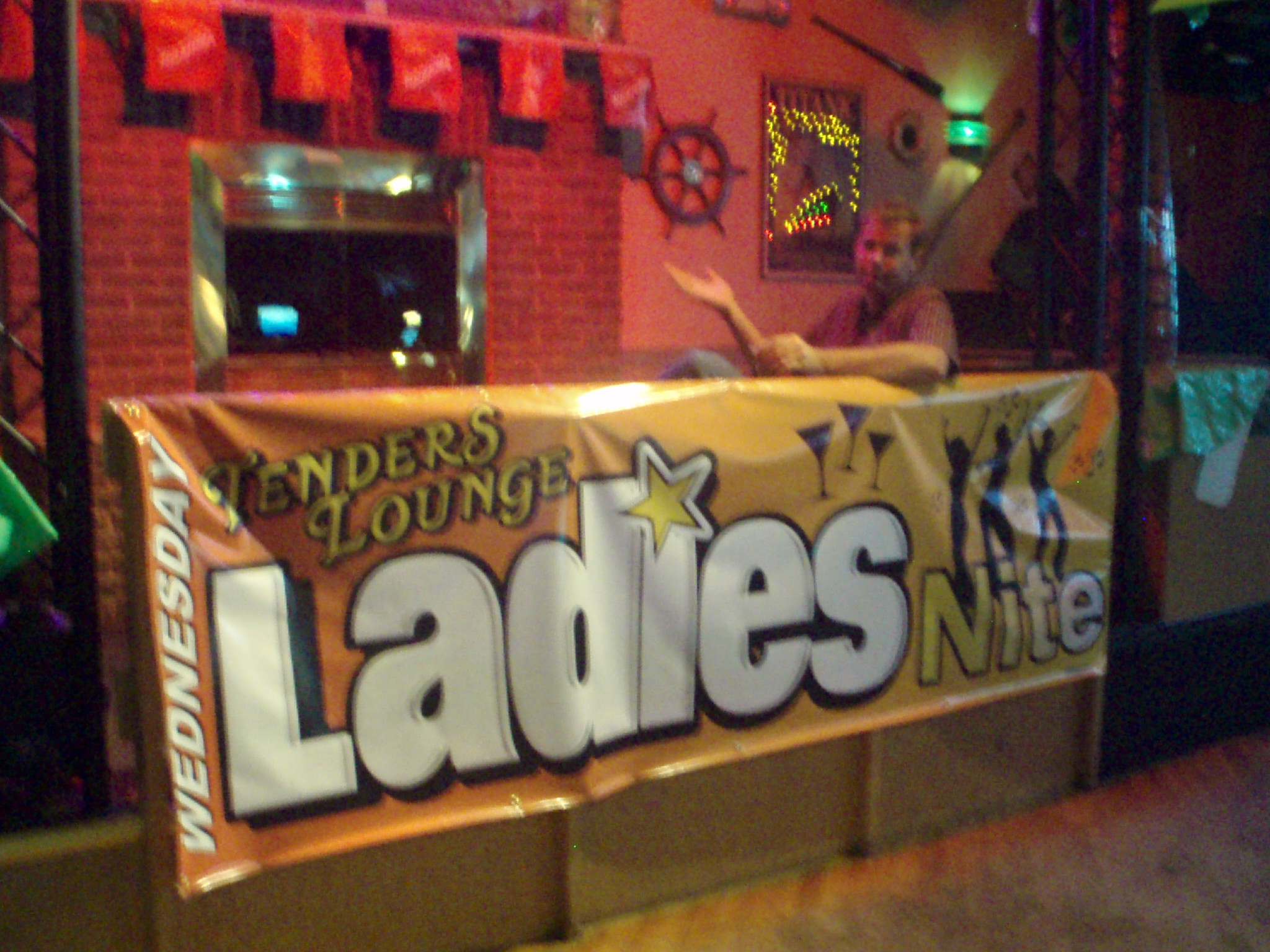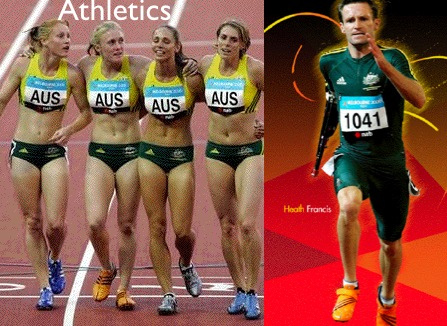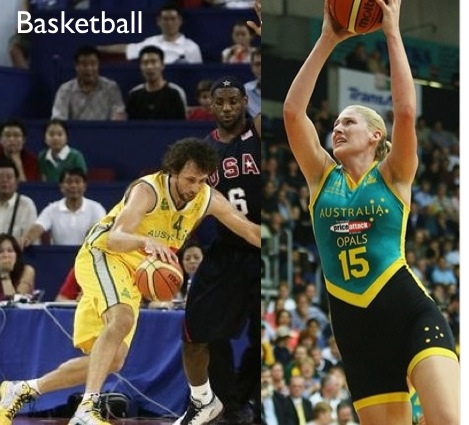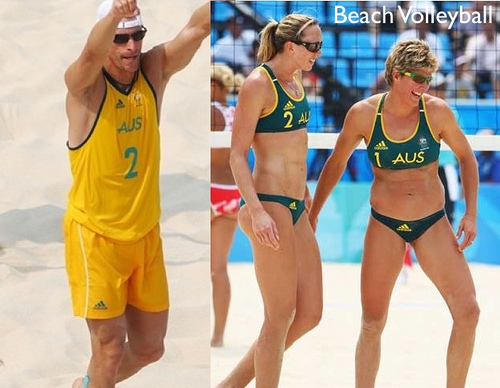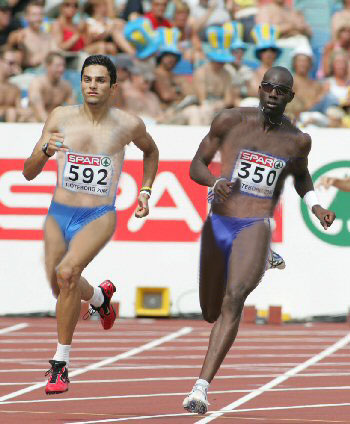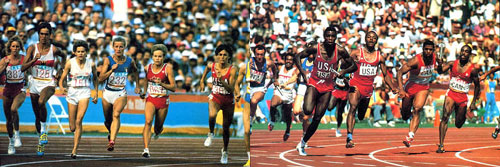This sign was posted in sight of the customer at the Days Inn (where I stayed when I failed to get out of Logan airport after the American Sociological Association meetings in August of 2008). I have incuded three observations after the image and text.

Text:
At Days Inns…
We Promise…
“Service with a smile, a cheerful greeting, a pleasant Hello.”
We Mean It When We Say…
“It’s no trouble at all.”
We Want To Know…
“If you enjoyed your stay.”
Because At Days Inn…
“We look forward to seeing you again.”
That’s our promise to you from every member of the Days Inn family.
(1) It is a nice example of the kind of emotional work that employees are required to do. It’s not just about getting customers into rooms efficiently and politely, it’s about a putting on a shit-eating grin and kissing their asses. Or else you’re fired.
(2) It’s also an example of a for-profit company calling itself a “family.” You are supposed to do things selflessly for your family, but you work at a job for money. Comparing a company to a family, I suspect, is one way to get employees to give to the company out of kinship-like duty instead of on contractual terms for money. This, of course, and ironically, lines the pockets of executives quite nicely.
(3) The logic behind their use of quotation marks eludes me.
NEW: I took these picture in a Kaiser Permanente hospital in Hollywood in October 2008. Close-ups and remarks below.
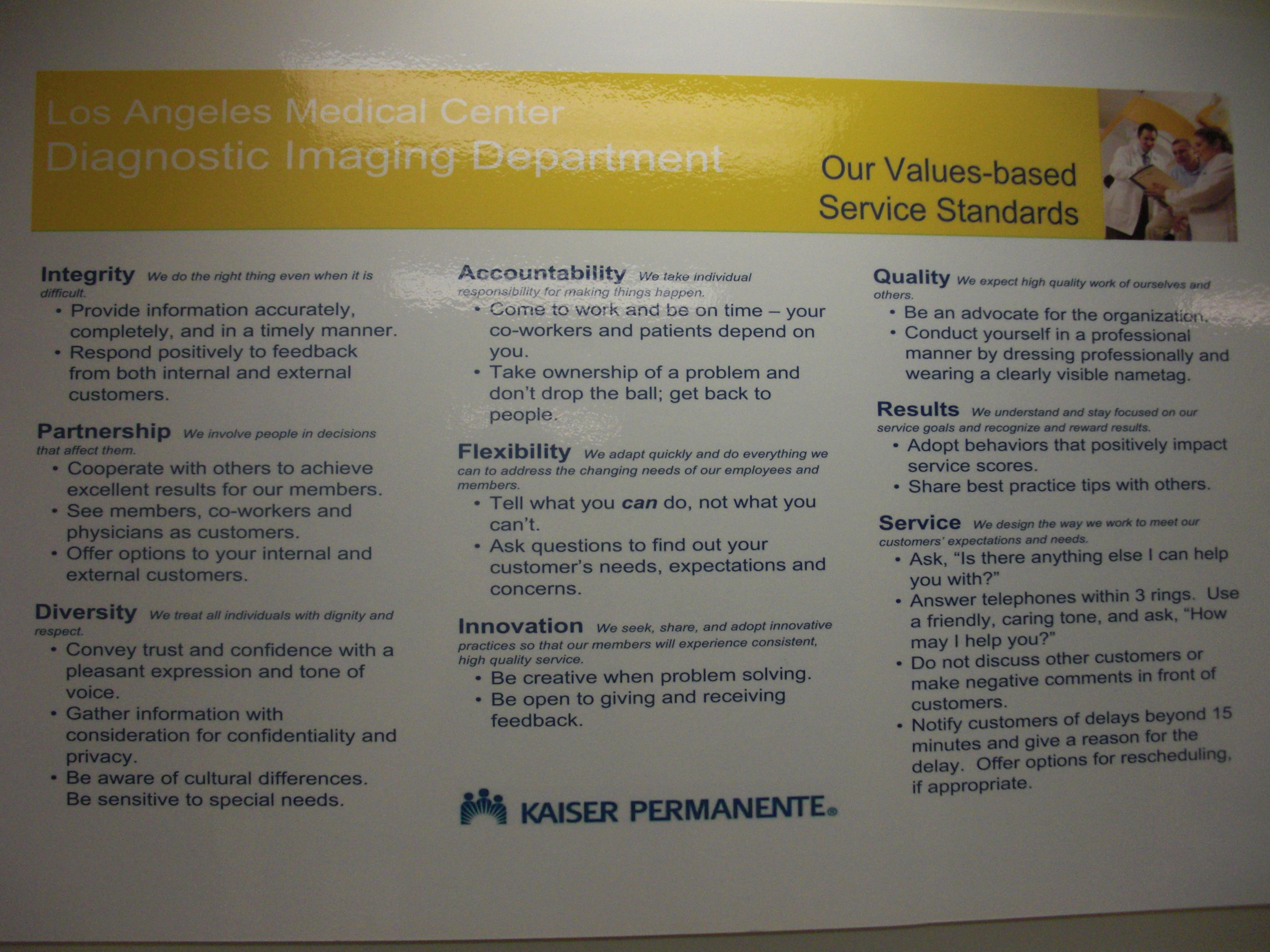
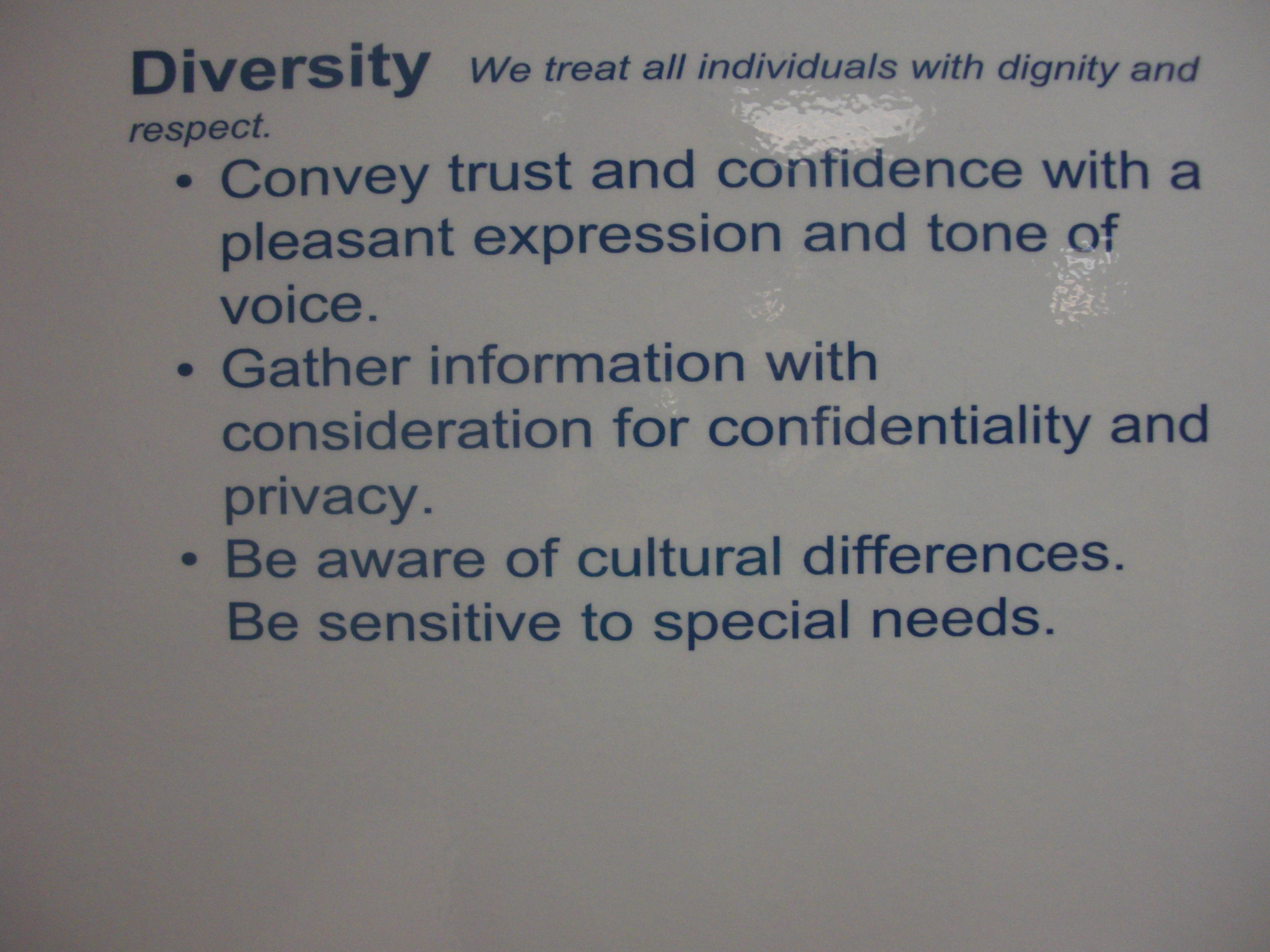
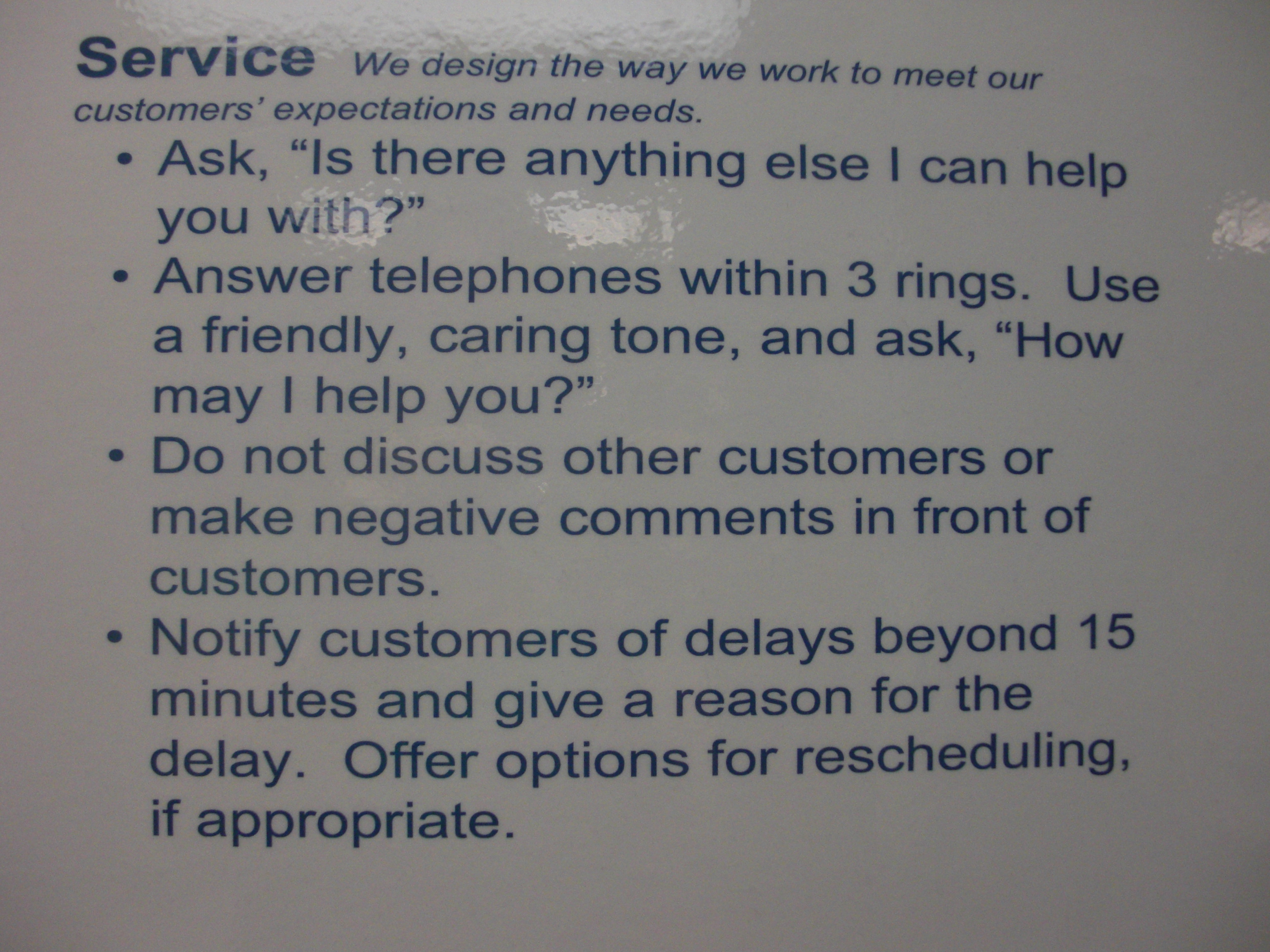
Like in the Days Inn example, employees at Kaiser are to do more than simply do their job effectively, they must do it “pleasant[ly]” and with “care.” It is one thing to be instructed to “gather information with consideration for confidentiality,” and quite another to be asked to “convey trust and confidence.” Scholars of emotion work note that the emotional part of jobs is (1) rarely seen as a skill or (2) a toll that makes your job trying and is, therefore, (3) undercompensated. Yet, the ability to “convey trust and confidence” in strangers is certainly a special one and the health insurance employee that can do that is certainly valuable. Unfortunately, like with other type of care work (i.e., nursing, teaching), that “value” is mostly lipservice and rarely translates into anything with exchange value (i.e., CASH).
For another example of emotion work, this one a sneak look behind the counter, click here.


